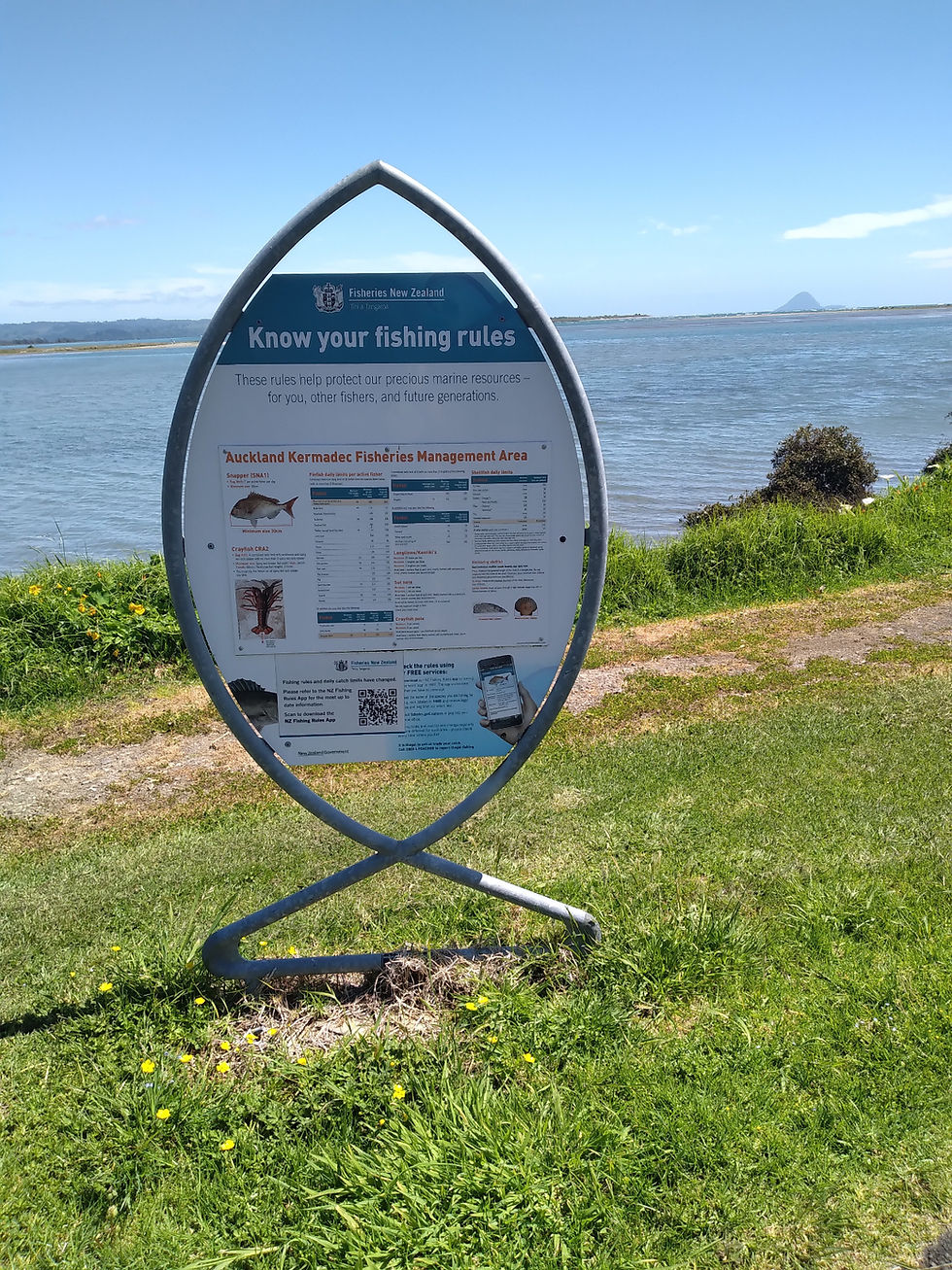Call for action from Ōhiwa kaitiaki
- Admin
- Oct 28, 2025
- 3 min read
Updated: Nov 6, 2025
With summer nearly here locals and visitors to Ōhiwa Harbour are gearing up to set the net for flounder, collect pipi or catch a snapper. It is timely that a local advocate for our ocean’s resources has just been given not one but two major awards.
On 11 September, the winners of the New Zealand Seafood Sustainability and Innovation Awards 2025 were announced at Parliament, recognising the many contributions of fishers, marine farmers, community groups and researchers from around the country. Among the winners was local Kura Paul-Burke (Ngāti Awa, Ngāti Whakahemo, Irish) who is well-known to the Ōhiwa Harbour community for her innovative work in the restoration of kuku/kūtai (green-lipped mussels) in the harbour. Kura took out both the Tangata Tiaki/Kaitiaki Award sponsored by Te Ohu Kaimoana and the Seafood New Zealand sponsored Supreme Sustainability and Innovation Award.

While these awards recognised her mahi (work) combining mātauranga Māori (traditional knowledge) with marine science to lead community-based restoration efforts reseeding pāua around Aotea Great Barrier Island and Waiheke Island, it all began at Ōhiwa Harbour. It was in her home rohe moana (area of the sea) where she developed her passion and specific approach to marine restoration. In 2015, Kura completed a doctorate that investigated the marine management of taonga species in Aotearoa New Zealand, based on a case study of kutai (green-lipped) mussels in Ōhiwa Harbour at Te Whare Wānanga o Awanuiārangi in Whakatāne.
During her studies, Paul-Burke noticed a relationship between the cultural diversity of people and marine biodiversity, noting that areas where indigenous peoples speak their languages and enact their traditional practices are the areas with the highest biodiversity. From 2007 to 2023 Kura led the Awhi Mai Awhi Atu project in Ōhiwa Harbour working closely with tāngata whenua at the harbour. The project has had great results with new mussel beds forming in the harbour. However, a rāhui is in place to ensure the mussel beds can get fully established and juvenile mussels growing old.

Kura is one of only three Māori professors of marine science in Aotearoa. She is currently employed at University of Waikato and even though spending much of her time in the Hauraki Golf she generously continues to advise the Ōhiwa Harbour Strategy partners on mussel restoration in the harbour.
In an interview with current affairs programme Te Ao she recently said, “We don’t have to live with a dying ocean. We really don’t. There’s always hope, but hope must come with action.” In Kura’s world view “it is the current generation's responsibility to ensure we pass on natural resources that are in as good a condition if not better than what we've inherited."[1]
A good place to start before heading out this summer is to be fully aware of the local fishing rules. The free NZ Fishing Rules app, which has had a major upgrade in July 2025, is a great way of having all those rules handy. For those preferring to check the rules offline there is signage at the boat ramps. Note there is a rāhui (ban) in place along the Ōhope Spit prohibiting the take of mussels.

For a brief summary of the key the rules check the Ōhiwa Harbour website. Respecting the rules simply means respecting the harbour, the very special taonga and the jewel in the crown of the Eastern Bay of Plenty.
[1] The wahine professor who is making waves in marine science, Stuff, 22 March 2023,





